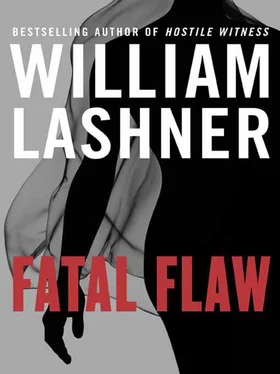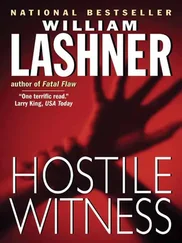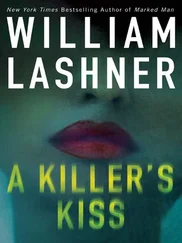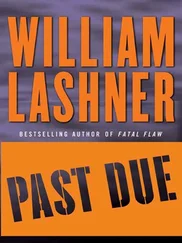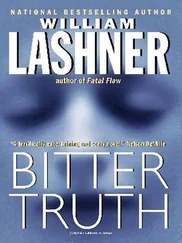
William Lashner
Fatal Flaw
The third book in the Victor Carl series, 2003
Part One. Of Blood and Jasmine
GUY FORRESTwas sitting on the cement steps outside the house when I arrived. His head was hidden in his hands. Rain fell in streams from his shoulders, his knees, tumbled off the roof of his brow. He was slumped naked in the rain, and beside his feet lay the gun.
From his nakedness and the diagonal despair of his posture, I suspected the worst.
“What did you do?” I shouted at him over the thrumming rain.
He didn’t answer, he didn’t move.
I prodded him with my foot. He collapsed onto his side.
“Guy, you bastard. What the hell did you do?”
His voice rose from the tangled limbs like the whimperings of a beaten dog. “I loved her. I loved her. I loved her.”
Then I no longer suspected, then I knew.
I leaned over and lifted the gun by the trigger guard. No telling what more damage he could do with it. Careful to leave no prints, I placed it in my outside raincoat pocket. The door to the house was thrown open. I slipped around his heaving body and stepped inside.
Later on, in the press, the house would be described as a Main Line love nest, but that raises images of a Stanford White-inspired palace of debauchery – red silk sheets and velvet wallpaper, a satin swing hanging from the rafters – but nothing could be further from the truth. It was a modest old stone house in a crowded Philadelphia suburb, just over City Line Avenue. The walls were bare, the furnishings sparse. A cheap table stood in the dining room to the left of the entrance, a television lay quiet before a threadbare couch in the living room to the right. There was a Jacuzzi in the bathroom, true, but in the furnishings there was a sense of biding time, of making do until real life with real furniture began. In the bedroom, up the stairs, I knew there to be a single bureau bought at some discount build-it-yourself place, a desk with stacks of bills, a fold-up chair, a mattress on the floor.
A mattress on the floor.
Well, maybe the press had it right after all, maybe it was a love nest, and maybe the mattress on the floor was the giveaway. For what would true lovers need with fine furnishings and fancy wallpaper? What would true lovers need with upholstered divans, with Klimts on the wall, with a grand piano in the formal living room? What would true lovers need with a hand-carved mahogany bed supporting a canopy of blue silk hanging over all like the surface of the heavens? Such luxury is only for those needing more in their lives than love. True lovers would require only a mattress on the floor to cast their spells one upon the other and enjoin the world to slip away. Until the world refused.
The mattress on the floor. That’s where I would find her.
Rain dripped off my coat like tears as I climbed the stairway. My hand crept along the smooth banister. Around the landing, up another half flight. As I rose ever closer, my step slowed. A complex scent pressed itself upon me like a smothering pillow. I could detect the sharpness of cordite and something sweet beneath that, a memory scent from my college days touched now with jasmine, and then something else, something lower than the cordite and the sweetness, something coppery and sour, something desolate. A few steps higher and then to the left, to the master bedroom.
The door was open, the bedroom light was on, the mattress on the floor was visible from the hallway outside. And on it she lay, her frail, pale body twisted strangely among the clotted sheets.
There was no need to check a pulse or place a mirror over her mouth. I had seen dead before and she qualified. Her legs were covered by the dark blue comforter, but it was pulled down far enough to reveal her cream silk teddy, shamelessly raised above her naked belly. Crimson spotted the blanched white of her skin. The teddy was stained red at the heart.
I stood there for longer than I now can remember. The sight of her unnatural posture, the colliding scents of gunpowder and pot, of blood and jasmine, the brutal mark of violence on her chest, all of it, the very configuration of her death overwhelmed me. I was lost in the vision, swallowed whole by time. I can’t tell you exactly what was flailing through my mind because it is lost to me now, just as I was lost to the moment, but when I recovered enough to function a decision had been made. A decision had been made. I’m not sure how, but I know why, I surely know why. A decision had been made, a decision I have never regretted, an implacable decision, yet pure and right, a decision had been made, and for the rest of my involvement in that death and its grisly aftermath that decision guided my every step, my every step, starting with the first.
I took a deep breath and entered the bedroom. I squatted, leaned over the mattress, touched her jaw. It was still slightly warm, but the joint now was not perfectly slack. The skin at the bottom of her arm had turned a purplish red. I pressed a finger into the skin; it whitened for an instant before the color returned. It had been about an hour, I calculated. Still squatting, I leaned farther forward and stared closely at her face.
Her name was Hailey Prouix. Black hair, blue eyes, long-necked and pale-skinned, she was thirty years old and lovely as a siren. While still alive she had peered out at the world with a wary detachment. She had seen too much to take anything at face value, her manner said as clear as words, she had been hurt too much to expect anything other than blows. She wore sharp, dark-rimmed glasses that were all business, but her mouth curved so achingly you couldn’t look at it without wanting to take it in your own. And her stare, her stare, containing as it did both warning and dare, could weaken knees.
To gaze at Hailey Prouix was to have your throat tighten with the wanting, and not just sexual wanting, though that of course was part of it, but something else, something even more powerful. There is inevitably, I suppose, a gap between all we ever wanted and all we ever will have, and that gap can be a source of bitter regret. But sometimes there is a glimpse of hope that the gap might be narrowed, might even be obliterated by one brilliant leap. In Hailey Prouix’s detached beauty, and the silent dare to break through her barriers, there was a glimpse of that hope. That her detachment might prove absolute and her barriers inexorable was no matter. To take her and hold her, to squeeze her arms, to kiss her, to win her and make her yours seemed to offer a chance to conquer life itself. Oh, yes, she was as lovely as a siren, and like a siren, she had drawn Guy Forrest from his wife and two children, from his high-powered lawyer’s job, from his finely appointed mini-mansion deep in the suburbs, onto the mattress on the floor of her small stone house just over the city line. And now, I suppose, as was inevitable from the first, he had crashed upon the shoals.
Before I pulled away from the corpse, I gently took hold of the bottom edge of her teddy and tugged it down to cover the exposed dark triangle.
On a crate by the mattress, along with her glasses, an alarm clock, a lamp, and a couple of books, sat two phones, a small red cellular thing and an old-style, corded phone. If anyone saw me arrive at the house, I didn’t want there to be too much of a time discrepancy between when I entered and when 911 logged the call, so I picked up the handset of the line-locked phone, dialed 911, and reported the murder. Then I went to work.
Читать дальше
